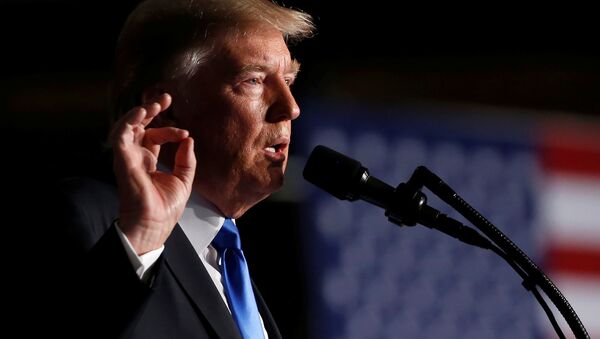Afghanistan, throughout its tortured history, has suffered the grievous consequences of imperial hubris and ensured that its proponents have paid a heavy price in return, measured in the countless thousands of soldiers whose lives have been forfeited in doomed attempts to dominate it.
With all the bombast of a president whose presidency has been hollowed out to the point where it is not hard to imagine he will soon struggle to have his shirts pressed on request, Donald Trump has declared that after sixteen years of failure the US will not withdraw from Afghanistan, but will instead stay and "fight and win."
Of course, neither Trump nor his sons — nor indeed the sons of any member of his administration — will ever have to fight anything more dangerous than a bad cold. Instead, as ever, it will be ordinary young men, mostly from low-income backgrounds and communities, who will be doing the staying and the fighting — and also the dying — in Afghanistan. Just an aside, it is sobering to contemplate that many of the young men who are about to be deployed there were but infants back in 2001, when Washington's longest military deployment since the Second World War began.
As for the people of Afghanistan itself, their suffering has been monumental, not to mention sustained, for over a generation. They have been cursed, it would appear, by a geographic location that has rendered the country vulnerable to the forces of extremism and religious and tribal obscurantism. With the aid of Washington, those forces of extremism and obscurantism managed to overcome the country's embrace of modernity and social and cultural emancipation in the 1980s. They have succeeded in keeping large swathes of the country in the grip of anarchy, buttressed by the ineffable corruption of a US-backed central government in Kabul, ever since.
In the speech laying out his "plan" for Afghanistan, Trump said, "I arrived at three fundamental conclusions about America's core interests in Afghanistan. First, our nation must seek an honorable and enduring outcome worthy of the tremendous sacrifices that have been made, especially the sacrifices of lives. The men and women who serve our nation in combat deserve a plan for victory. They deserve the tools they need and the trust they have earned to fight and to win."
No less a military genius than Napoleon averred that, "One must change one's tactics every ten years if one wishes to maintain one's superiority." Perhaps it is no longer fashionable to call upon the wisdom of military minds such as Napoleon Bonaparte's at West Point, but the paucity of a strategy, much less the tactics required to achieve its aims, is glaringly apparent in the idea that an "honorable and enduring outcome worthy of the tremendous sacrifices that have been made, especially the sacrifices of lives," amounts to anything more than hot air.
Wasting more treasure and lives in order to justify the treasure and lives that have already been wasted is the very definition of futile — the kind that rests on foundations of national delusion. It is the delusion of a nation that has no solution, no answer to the chaos it has created as it lumbers from one failed military occupation and intervention to the next like a drunken giant in a tea shop.
Then, too, imagine you are an Afghan listening to the president's words — words tantamount to declaring that their lives are eminently expendable compared to American lives. If ever the Taliban were lacking in popular support, this speech has just come to the rescue, harvesting the kind of arrogance and chauvinism that has been the undoing of every empire in history.
There is no military solution, none whatsoever, in Afghanistan for the US and its NATO allies. Neither does Washington have any solution to the riddle that is Pakistan, a country that has been assiduous in straddling the line between Western ally and foe. The notion that this nuclear-armed Muslim state will be made to kowtow to US interests across its northern border is illusory. Pakistan has vital security, geostrategic and economic interests in Afghanistan that it will not relinquish, no matter who the occupant of the White House might be.
Underpinning those interests is Islamabad's enduring enmity with India for hegemony in South Asia. It is an enmity that has never waned since India's brutal and bloody partition by the British in 1947, playing out ever since in the form of a proxy war in Kashmir, and also in Afghanistan, where India has longstanding security, geostrategic and economic interests of its own.
Here lies the key to Afghanistan's future. As long as enmity exists between India and Pakistan, Afghanistan will continue to be a nation and society in turmoil, cursed, as mentioned, by a geographic location making it a land bridge between Central Asia and South Asia.
Whoever controls Afghanistan controls this land bridge, benefitting from its potential as a major oil and gas transhipment route. Thus bringing India and Pakistan together as partners, along with China, in such an endeavor would do more to solve Afghanistan's woes than any amount of hot air from a US president, and any number of American troops, ever could.
The views expressed in this article are solely those of the author and do not necessarily reflect the official position of Sputnik.
Check out John's Sputnik radio show, Hard Facts.





